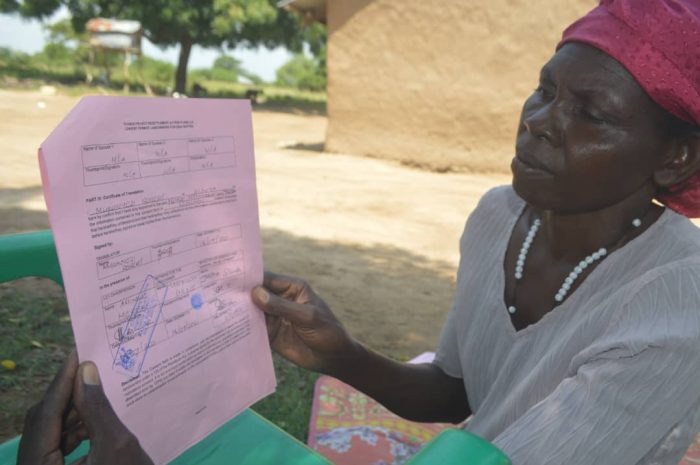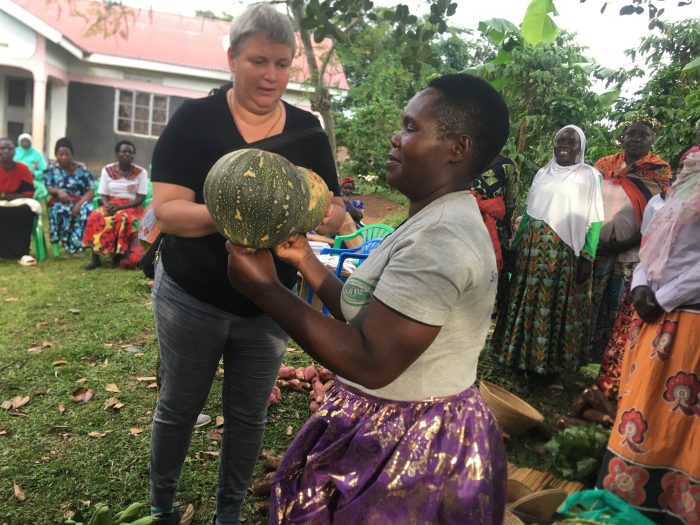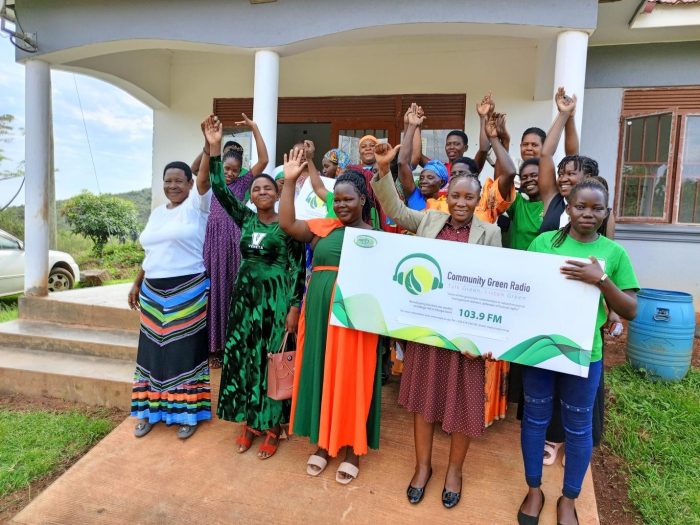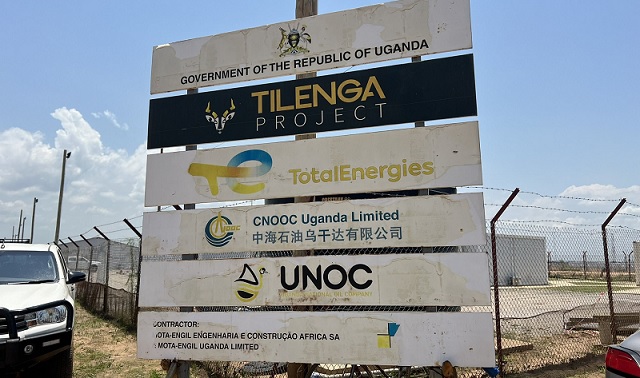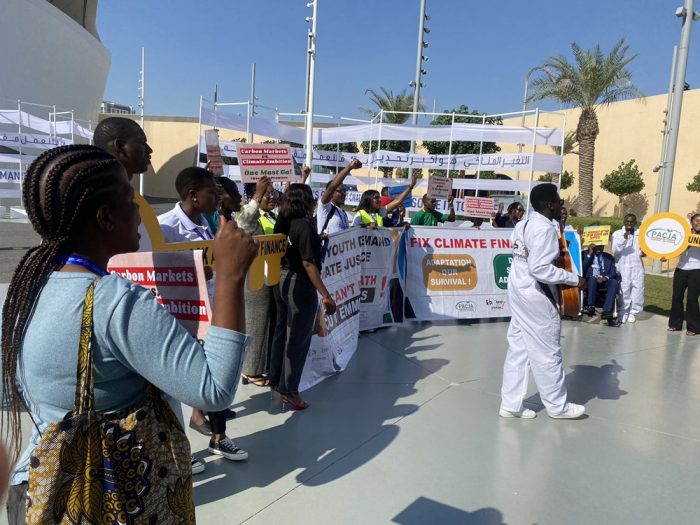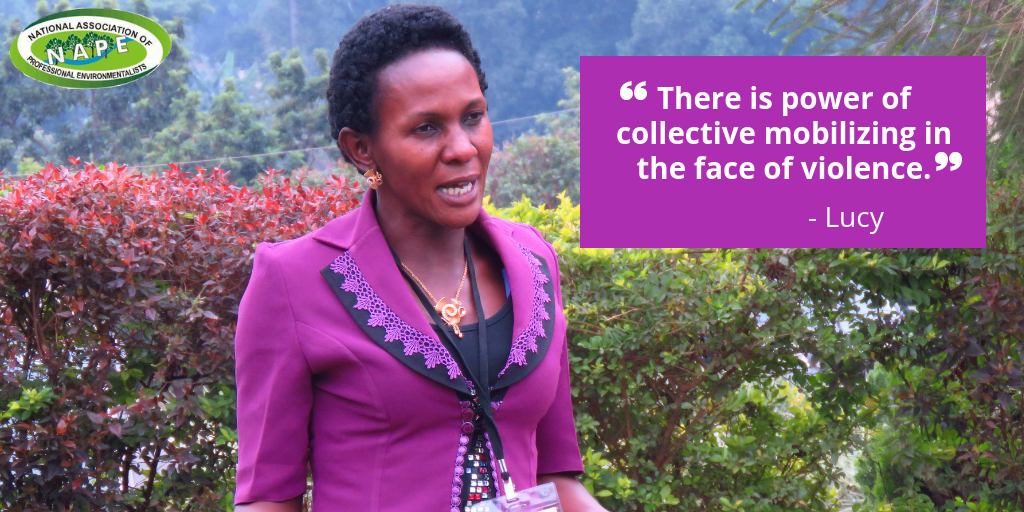
However, women at grassroots still face violence but remain silent about it due to factors like illiteracy, poverty and vast information gap which can be sealed through sensitization.
This grassroots idea has translated into more than 5,167 organizations worldwide organizing around the 16 Days of Activism campaign in over 187 countries.
The 16 Days of Activism is all about getting involved in the community in which we live by coming together on this important issue then we begin moving forward.
It was then, that 23 female civil society leaders from all over the world decided they want to spark international action on the issue and build connections that would enable countries to work together to eliminate gender violence worldwide.
This year’s International theme is “in Uganda, the 2018 National theme is “From peace in a Home to peace in the Nation” and in Eastern, Central and Southern Africa, the activists have adopted the theme “Everyone; Everyday; Everyway-Prevent violence against women; your way.”
Under the above theme, the “UNiTE” partners are encouraged to host events with local,national,regional and global women’s movements, survivor advocates and women human rights defenders and create opportunities for dialogue between activists, policy makers and the public.
National Association of Professional Environmentalists (NAPE) Gender officer Sostine Namanya explains that the 16 days of activism is a global annual campaign challenging violence against women and girls.
Namanya says women need to be sensitized on their rights because it’s all about gender based violence including women and girls and the seed of the idea to raise awareness about violence against women and girls at the Women’s Global Leadership Institute.
“The event is vital to participate in because it enables women to be in solidarity through collective participation through responding and taking action to fight violence against women” says Namanya.
In 2017, over 700 Organizations from 92 countries took part in global campaign and at regional level, the gender based violence Prevention Network focused on the retention of women and girls in the education system and explored discrimination and experiences of violence constrain girls’ ability to remain in and benefit from the current education system.
However, members of the network urged leaders and community members to ensure girls remain in school and complete their education.
For Uganda as a country, the theme sheds light on a widespread culture that promotes acts of violence against women particularly sexual harassment and assault.
The 16 days of activism of 2018 campaign emphasizes on the prevalence of sexual violence in places of work and education institutions as circulated in the media which are deeply distressing but it calls for long-overdue reflection on the social and institutional structures that promote these acts as well as on our own actions.
This requires answers to many questions like;does sexual harassment occur in schools, Community?How can young people challenge sexist attitudes and promote equality between the sexes at school and in the community?
Why do victims of gender-based violence often remain silent about the abuse they have experienced? What can be done to help victims feel more comfortableand speak out?
Are young people equipped to deal with gender-based violence and sexual harassment? Do they have access to enough support and tools?
The questions are answered through the alliance exhibited in collective participation to fight for the rights of women during the 16 days of activism to eliminate violence against women and girlsby:-
- Educating Community members on their responsibilities under Internal and National human rights law.
- Strengthening women’s ability to earn money and support their households by providing skills-training for women.
- Promote peaceful resolution of disputes by including the perspectives of women and girls.
However, the rural women are in solidarity with other women who want to fight for their rights given that there is collective power to mobilize in the face of violence because most women are empowered through advocacy to speak up against violence.
Lucy Ongera from Rwamutonga village in Bugambe sub-county, Hoima district says many women face violence in their homes but still remain silent due to poverty, illiteracy and lack of information channels to seek help in the fight against violence.
According to Esther Abigaba from kitegwa village in Buseruka sub-county, one of the areas affected by the Oil refinery project in Hoima district, women at the grassroots really need empowerment because there are some women within the communities who cannot speak up despite existence of programs that advocate for their rights.
“Gone are the days when women were violated against and remain silent but there is widespread advocacy through emancipation hence together, we can speak up and fight for our rights”says Abigaba.
Beatrice Rukanyangaa National Feminist steering committee member clarifies that women and girls are discriminated and violated against because there are weak laws governing the vice but emphasis should be put on creating Laws that protect discrimination and violence against them.
“There are existing laws against violent acts like rape, assault, verbal abuse, torture and others need to be enforced because the laws are very weak” Rukanyanga said.
Regarding the 2018 Activism campaign, Human rights defenders believe that, Gender based violence and discrimination can be eliminated though encouraging women to participate in the political process and educating the public about the value of women’s votes.
Apart from the above, raising public awareness of the poor conditions’ grassroots women face in rural areas is vital and also highlighting the value of girls’ education and women’s participation in economic development.
Story Compiled by Dorcus Drijaru
Assistant News Editor, Community Green Radio

